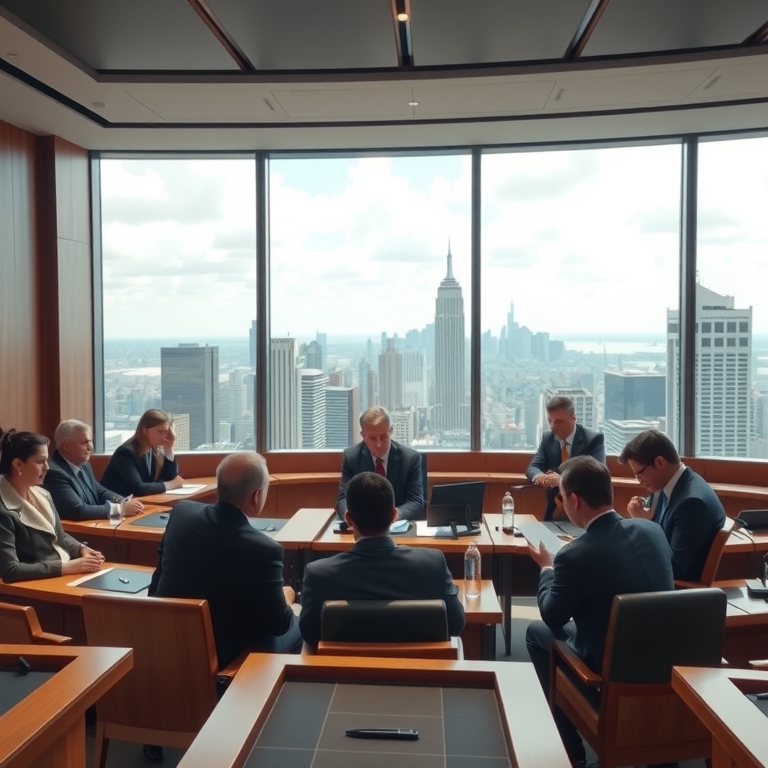In a move that has set the city’s economic and social circles abuzz, the recent decision by the City Council to impose a levy on luxury goods has sparked widespread debate. The measure, aimed at bolstering the city’s coffers while ostensibly addressing economic disparity, has revealed a spectrum of opinions and raised important questions about governance, fiscal policy, and social equity.
The levy, which targets high-end products such as designer fashion, luxury vehicles, and premium electronics, is expected to generate significant revenue. Proponents of the measure argue that it is a necessary step in diversifying the city’s income sources, particularly in the face of mounting infrastructure needs and public service demands. The levy, they assert, is a pragmatic approach to ensuring that those who have the means contribute a fair share to the upkeep of the city.
Supporters also point to the potential for the levy to act as a tool for social equity. By targeting luxury goods, the measure is seen as a way to subtly redistribute wealth without directly impacting essential commodities or services that affect a broader demographic. This perspective resonates with those who feel that the city has, for too long, catered to the affluent at the expense of more inclusive economic policies.
However, the decision has not been without its critics. Opponents argue that the levy could have unintended consequences that may outweigh its intended benefits. A common concern is the potential impact on local businesses that specialize in luxury goods. These businesses, critics contend, might face a downturn in sales as consumers seek to avoid the additional costs, opting instead to purchase luxury items in neighboring cities or through online platforms devoid of such levies. This, in turn, could lead to decreased local investment and job losses in the retail sector.
Moreover, there is unease about the signal this sends to potential investors and high-net-worth individuals considering the city as a home or business base. Critics fear that the levy could be perceived as hostile to wealth creation, encouraging affluent residents and businesses to relocate, thereby diminishing the city’s tax base in the long run. Such a trend could exacerbate the very fiscal challenges the levy aims to address.
The debate has also stirred discussions around the philosophical underpinnings of taxation and its role in society. Some view the levy as a necessary corrective in a city where the wealth gap is increasingly visible, with luxury condos overlooking neighborhoods that struggle with underinvestment. Others see it as an overreach, arguing that taxation should be equitable and not punitive, warning against a slippery slope toward more aggressive taxation policies.
From a political standpoint, the levy has revealed interesting dynamics within the City Council itself. The decision was not unanimous, with some council members expressing reservations about the measure’s potential impact on the city’s economic landscape. This division reflects broader national and global conversations about how best to balance growth with equity, efficiency with fairness.
City residents, too, have voiced their opinions, with public forums and social media platforms becoming arenas for lively debate. Some residents welcome the levy, viewing it as a moral stand against unchecked consumerism and an opportunity to generate funds for public projects such as schools, parks, and transit systems. Others are skeptical, concerned that the revenue generated might not be effectively allocated, and question whether the levy genuinely addresses the root causes of economic inequality.
Amidst the debate, there are calls for a comprehensive review of the city’s fiscal policies, with suggestions that a more holistic approach might be needed. This could involve reassessing other revenue streams, exploring partnerships with the private sector, and ensuring that public spending is both efficient and impactful. There is also a push for greater transparency and accountability in how the levy funds will be managed and utilized, to build trust and ensure that the measure delivers on its promises.
As the city navigates these turbulent waters, the decision on the luxury goods levy serves as a microcosm of broader societal tensions between wealth and equity, growth and sustainability. It is a reminder of the complex interplay between economic policy and social justice, and the ongoing challenge of crafting solutions that are both effective and inclusive.
In the coming months, all eyes will be on the implementation of the levy and its impact on the city’s economy and social fabric. The City Council’s decision, while contentious, has opened up vital conversations that, if navigated thoughtfully, could pave the way for a more equitable and prosperous urban environment. Whether the levy ultimately succeeds or falters, it has already succeeded in galvanizing a city to reflect on its values and priorities, and that in itself is a step forward.






